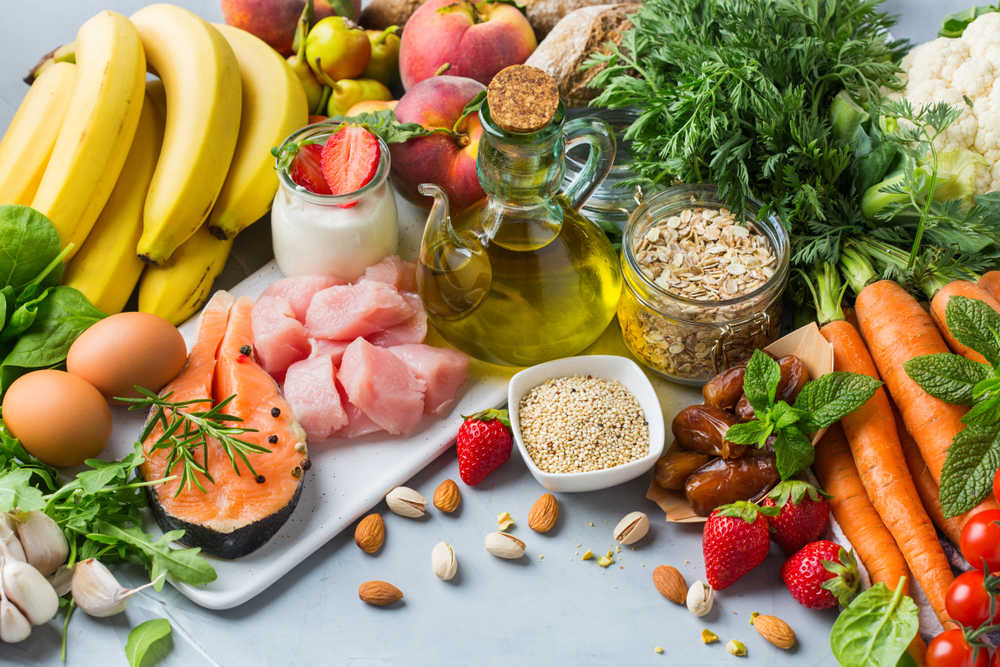Table of Contents

Olive oil, fish, nuts ― the hallmarks of the Mediterranean diet have long been hailed as a recipe for lasting health. This age-old eating pattern could literally add years to your life.
A groundbreaking study published in May 2024 suggests that for women, higher adherence to a Mediterranean-style diet slashes all-cause mortality risk by a striking 23%.
In other words, every forkful of leafy greens and grilled seafood could be edging you closer to becoming a silver-haired centenarian.
Unpacking the Longevity Formula
So what's the Mediterranean secret to outlasting the competition? To find out, researchers scrutinized the blood of over 25,000 American women, searching for telltale signs of biological aging.
Poring over 33 distinct biomarkers, from inflammatory signals to insulin metrics, a fascinating picture began to emerge. Women scoring highest on Mediterranean diet adherence showed markedly younger biological profiles, with lower levels of cell-damaging inflammation and metabolic mayhem.
Intriguingly, the usual suspects like cholesterol and blood sugar barely moved the longevity needle. Instead, more enigmatic players ― small molecule metabolites, triglyceride-rich lipoproteins, creeping weight gain ― seemed to be doing the lion's share of lifespan legwork.
In essence, the Mediterranean diet appeared to be orchestrating an intricate symphony of subtle biological shifts, quietly buttressing health in ways no single biomarker could capture.
Putting Findings in Cultural Context
Of course, the Mediterranean meals skirting these women's plates likely looked different than the traditional fare enjoyed by their European counterparts. Reworking regional staples to fit an American palate and pantry is no easy feat.
Yet the study's findings suggest even a remixed rendition of the Mediterranean greatest hits ― ample produce, whole grains, lean protein, healthy fats ― can still harmonize to extend life. Swapping in stateside ingredients and tweaking recipes to suit personal tastes doesn't dilute the diet's essence or efficacy.
From Precision Nutrition to Public Health
The study's exhaustive biomolecular sleuthing points to an intriguing future for precision nutrition. By understanding exactly how specific dietary patterns trigger different longevity levers, we inch closer to truly personalized prescriptions for optimal eating.
Should your cardiologist be eyeing your blood's metabolite mixup? Could a nutrigenomic workup reveal bespoke dietary advice, grounded in your unique biological blueprint? As science speeds forward, such tailored tactics may soon leap from lab bench to lunch counter.
But zooming out from the microscopic minutiae, this research also underscores the potent population-level impact of nutrition. Making a Mediterranean model the default, rather than a rarefied ideal, could be transformative for public health.
Envisioning schools, hospitals, workplaces where vibrant veggies, wholesome handhelds, and lovingly prepared plant-forward plates are the norm requires a societal shift. But with an abundance of affordable, culturally resonant options, we can nudge the needle on nationwide nourishment.
Small Shifts, Jumbo Gains
Perhaps most galvanizing of all, the study illuminates the outsize payoff of even baby steps towards a Mediterranean mentality. Women hovering in the middle of the adherence spectrum, making modest tweaks rather than mounting total diet overhauls, still reaped a robust 16% drop in death risk.
The road to reaping the Mediterranean's life-prolonging perks need not demand an extreme detour. Steadily crowding out ultraprocessed picks in favor of whole food alternatives, savoring home-cooked meals more often than microwaved packs ― these are accessible actions we can all take to inch our way into a longer, livelier future.
In the end, the Mediterranean diet's power lies not in rigid restrictions or esoteric ingredients, but in an overall pattern of joyous, communal eating, appreciation for nature's bounty, and pleasure in the mere act of nourishing ourselves well.
As we stand on the cusp of longer lifespans than our ancestors could scarcely imagine, there's never been a better time to embrace the timeless wisdom of the Mediterranean, one imperfect, delectable bite at a time.
AD
Most Recent
AD
